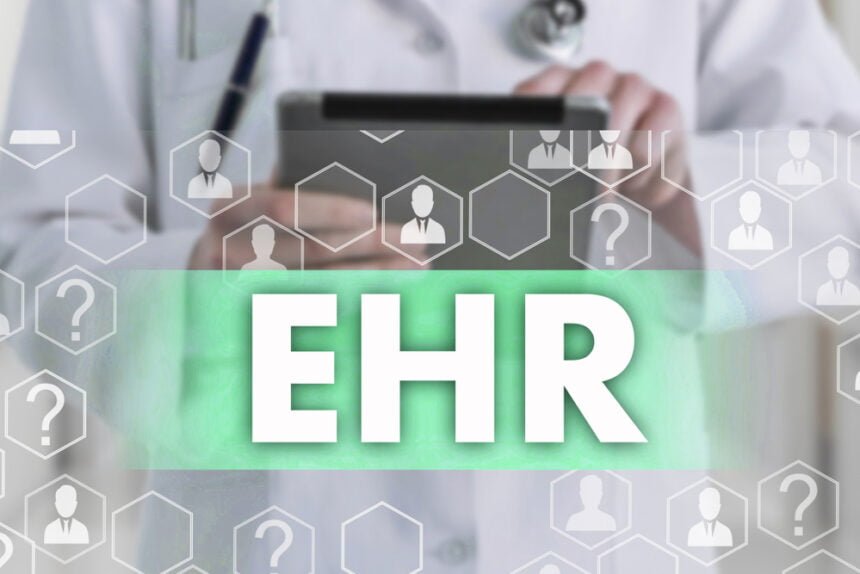Technology has been at the forefront of healthcare for years. Most healthcare providers wouldn’t be able to serve their clients reliably without leveraging the latest advances in technological innovation.
Healthcare providers are projected to spend over $603 billion on medical technology this year. The market for healthcare software alone is worth over $12.5 billion.
But what types of software are really changing the state of healthcare? EHR software is one of them.
EHR Software is Instrumental in the Evolution of the Healthare Indstustry
One of the many examples of technology in healthcare is the application of EHR software. The Office of the National Coordinator for Health Information Technology (ONC) has a great overview of this technology.
A strong EHR software server is essential for managing healthcare information to improve patient care, increase efficiency, and access data easily. But finding a server to support your healthcare facility’s EHR system is crucial in order for it to run smoothly. A good server will aid in better providing real-time access to medical records and history, enabling better decision-making. We’ve compiled a list of a few of the top recommended servers and their features so you can make an informed decision on your facility’s next system.
We shared some guidance on optimizing EHR systems in the past. However, it is important to familiarize yourself with the technology before integrating it into your healthcare practice.
Top EHR Servers
Here are some of the best EHR servers for healthcare providers.
1. HPE Superdome Flex:
The HPE Superdome Flex offers unmatched effectiveness, versatility, protection, and expandability. The system is extremely accessible, reliable, and offers safe exposure to crucial information with the system, which has been verified for Epic environments. With fast growing information, many outdated systems are unable to meet rising demands. The flexibility of HPE Superdome Flex allows you to start small and evolve as your needs change. The Superdome Flex system also includes supply-chain security at the chip level, assisting in the prevention of spyware and other cyberattacks. It also works for handling or expediting the development of your AI systems. In order to run the Caché database supporting Epic’s recommended Symmetric Multiprocessing (SMP) scale-up application architecture, HPE has verified its technology, offering a flexible framework that helps growth as needed. To combat latency in reconstructing complicated data sets, a huge shared-memory capability promotes timely findings as it eliminates the need to partition data sets and re-assemble after processing.
2. Lenovo Flex System Enterprise Chassis
Lenovo’s Flex System, also suited for Epic environments, utilizes blade technology for increased ability to consolidate and virtualize data. The system features a flexible, scalable design that enables healthcare organizations to add or remove components as needed to meet changing demands. It supports a range of compute, storage, and networking modules, allowing healthcare IT teams to mix and match components to build a customized solution that meets their specific needs. One of the more unique features of the server is its flexibility. With 14 bays in the chassis, compute and networking scalability is possible to accommodate growing systems. The Flex System is set up so that it can grow from one single chassis to more if needed. And with the Chassis Management Module, the system can provide monitoring and communication across the system, so if one chassis fails, the other will detect it and take over smoothly with no disruption. Additionally, the system features advanced security features, including data encryption and network segmentation, which help protect sensitive patient information. The Flex System also includes integrated management tools that simplify the administration of complex IT environments, making it easier for healthcare IT teams to manage their infrastructure. The benefits of the Lenovo Flex System Enterprise Chassis for healthcare IT include scalability, customization, security, and ease of management, which help healthcare organizations to more effectively support their critical applications and data.
3. IBM FlashSystem
The IBM FlashSystem series is a range of all-flash storage arrays designed for high-performance enterprise environments, making it accommodating for healthcare facilities. Additionally, the FlashSystem provides robust data protection features, including snapshots, replication, and data encryption, complying with the industry standards set up by the National Institute of Standards and Technology (NIST) and the Health Insurance Portability and Accountability Act (HIPAA), making it ideal for organizations that need to protect sensitive data. The data security frameworks offered by IBM FlashSystem Cyber Vault and IBM Safeguarded Copy serve as the building blocks for creating and implementing a comprehensive set of data protection and recovery capabilities. The systems also feature built-in data compression and deduplication capabilities, which help reduce storage requirements and lower costs.
EHR Technology is Becoming More Important in Healthcare
As technology continues to advance, EHRs will continue to play a critical role in the delivery of high-quality, cost-effective and patient-centered healthcare. Improve your facility’s quality of care by selecting a server that will best serve your EHR system. Consulting with either of the listed brands, or IT consulting companies like Comport can help your organization choose the system for optimal performance.






